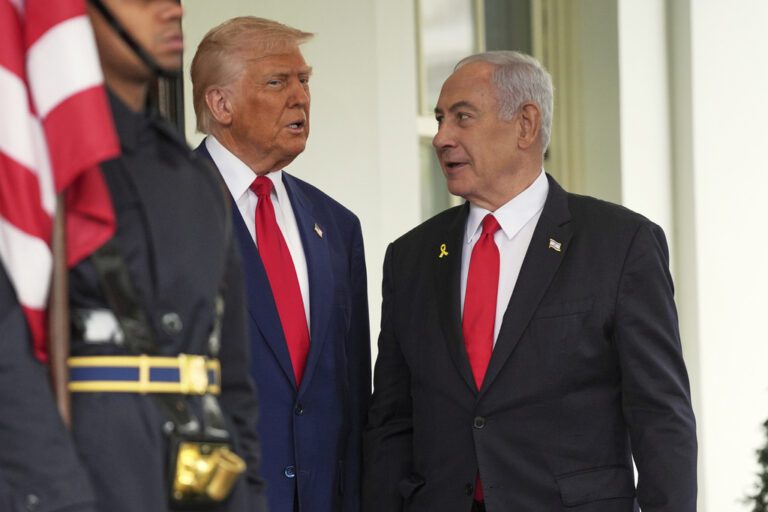Tensions Rise as Gaza Conflict Escalates: Key Developments and Perspectives
Understanding the Gaza Situation
The ongoing conflict in Gaza has drawn intense scrutiny from global leaders and human rights organizations. Recently, former President Donald Trump weighed in on the matter, expressing his views regarding the humanitarian crisis in the Hamas-controlled region.
Trump’s Perspective on Gaza Conflict
When asked whether he believed that Israel’s actions in Gaza constitute genocide, Trump firmly rejected the notion:
“I don’t think it’s that. They’re in a war,” he stated during a press interaction.
He emphasized a desire for humanitarian relief, asserting:
“We want the people fed… We don’t want people going hungry, and we don’t want people to starve."
This statement underscores a broader humanitarian concern surrounding the treatment of civilians amidst the ongoing conflict.
Netanyahu’s Harsh Critique of Hamas
Israeli Prime Minister Benjamin Netanyahu delivered a strong denunciation of Hamas, linking their actions to historical atrocities:
- Netanyahu accused Hamas of conducting efforts akin to those of the Nazis against Israeli hostages.
- He claimed that two recent hostages appeared emaciated in propaganda videos, highlighting their tragic condition.
In his words:
“While the hostages waste away in a dungeon… they have thick, fleshy arms. They have everything they need to eat.”
He expressed a commitment to securing the release of hostages and eliminating the threat posed by Hamas:
“But we will not break. I am filled with even greater determination to free our captive sons, to eliminate Hamas, and to ensure that Gaza will never again pose a threat to Israel.”
Call for Humanitarian Response
In a recent conversation with Julien Lerisson, head of the International Committee of the Red Cross (ICRC) delegation in the region, Netanyahu urged for immediate humanitarian aid to the prisoners. He stated that the narrative of starvation purported by Hamas is ironic, given the group’s treatment of Israeli hostages:
“The world cannot remain indifferent to the shocking images which are reminiscent of Nazi atrocities.”
Hamas’s Position and Conditions for Aid
In response to Netanyahu’s appeal, Hamas military spokesperson Abu Obeidah offered a conditional acceptance of aid:
- He stated that Hamas would be ready to cooperate with the Red Cross for delivering food and medicine to the hostages.
- However, this assistance hinges on Israel’s agreement to permanently open humanitarian corridors and cease airstrikes.
Humanitarian Aid Efforts in Gaza
Despite the dire situation, humanitarian efforts have been ramping up:
- Israel has established humanitarian corridors operational from 6 a.m. to 11 p.m. daily.
- Over the past week, more than 23,000 tons of humanitarian aid have entered Gaza, facilitated by the United Nations and international organizations.
In addition, several Western and Arab nations have airdropped supplies into the enclave. Nonetheless, the United Nations has voiced concerns regarding the efficacy and safety of such measures.
Israeli Military Strategy and Hostage Crisis
Israeli media reports suggest Prime Minister Netanyahu may expand military operations in Gaza, driven by a belief that Hamas is not inclined toward a ceasefire. This intention has sparked critical reactions:
- The Hostage Forum in Israel released a statement criticizing Netanyahu’s approach, arguing that his strategy could lead to disaster:
“Netanyahu is leading Israel and the hostages to doom… deceiving the public.”
This reflection encapsulates the complexity and high stakes of the ongoing humanitarian crisis and military actions in Gaza.
Conclusion
As tensions continue to escalate between Israel and Hamas, the focus remains on the plight of hostages and the civilians caught in the crossfire. The international community watches closely, hoping for a resolution that prioritizes humanitarian relief and peace.
For further updates on the Gaza conflict, consider following reliable news sources and humanitarian organizations.


